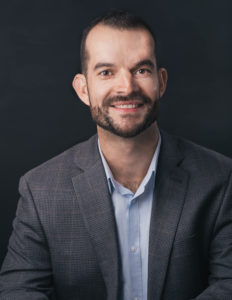March 2, 2023
The utility of programmable, RNA-guided CRISPR-Cas systems in genome engineering continues to evolve. Nature has afforded scientists novel and diverse gene editing functionality, from nuclease-dependent CRISPR-Cas9 to second-generation base and prime editors that do not produce double-strand breaks.
This webinar will describe a new CRISPR-Cas9 paradigm relying on nuclease-deficient bacterial transposons that catalyze RNA-guided integration of mobile genetic elements into the genome. The discovery of a fully programmable, RNA-guided transposase lays the foundation for kilobase-scale genome engineering with broad applications for developing cell and gene therapies.
Webinar attendees will learn:
- The basics of first- and second-generation CRISPR-Cas technologies from a scientist at the forefront of their development
- Mechanisms, accommodation, and cell type diversity of CRISPR-Cas programmable transposition
- How transposase factor coordination enables highly specific, genome-wide DNA integration to target sites
- Implications of programmable transposases that obviate the need for DNA double-strand breaks and homologous recombination
Speaker Bio:

Samuel H. Sternberg,
PhD, Assistant Professor of
Biochemistry and Molecular Biophysics,
Columbia University
PhD, Assistant Professor of
Biochemistry and Molecular Biophysics,
Columbia University
Dr. Sternberg is an assistant professor of Biochemistry and Molecular Biophysics at Columbia University in New York City, NY. Sam’s lab explores the biology of CRISPR-Cas systems and transposable elements and develops these systems for genome engineering. He received his Ph.D. in Chemistry from the University of California, Berkeley, and he worked as a Scientist and Group Leader at Caribou Biosciences before joining the Columbia faculty in 2018. In addition to publishing his research in leading journals and speaking internationally, Sam remains actively involved in public outreach and ongoing discussions on the ethical issues surrounding genome editing. Together with his doctoral thesis advisor, Nobel Prize laureate Jennifer Doudna, he co-authored A Crack in Creation: Gene Editing and the Unthinkable Power to Control Evolution, a popular science book about the discovery, development, and applications of CRISPR technology. Sam is the recipient of the NIH Director’s New Innovator Award, the Scaringe Award from the RNA society, the Harold Weintraub Graduate Student Award from the Fred Hutchinson Cancer Research Center, and is a Sloan Fellow, Pew Biomedical Scholar, and Schaefer Research Scholar.
